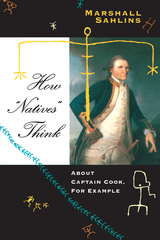
Since first reported to the world in 1780, the death of Captain Cook on a Hawaiian beach the previous year has been revered, celebrated, and shrouded in mystery. Simultaneously called a hero and an antihero, a ruthless invader, and a torchbearer of the Enlightenment, Cook’s reputation grew as much out of the moving story of his death as out of his adventures while he lived.
In a style that is more detective story than conventional biography, Glyn Williams explores the multiple narratives of Cook’s death. He reveals how the British Admiralty first attempted to censor accounts of Cook’s erratic behavior and how the “authorized” version of his death—a lengthy narrative serialized in the leading publications of the day—reduced the story to the final hours of a noble leader who gave his life to save others. Williams argues that the contrary evidence of a chaotic bloody fracas on the beach at Kealakekua Bay was ignored, and that the unexplained disappearance of Cook’s own journal helped the process of concealment. He believes that Cook was not entirely the man sanctified by the British public. More than two hundred years later, an explosive interplay between academic controversy and nationalist feelings has once more drawn attention to a life that has attracted praise and controversy, abhorrence and admiration. In short, Williams examines the story of Cook’s progress from obscurity to fame and, eventually, to infamy—a story that, until now, has never been fully told.

Hawaiian culture as it met foreign traders and settlers is the context for Sahlins's structuralist methodology of historical interpretation

In recent years, these questions have arisen in debates over the death and deification of Captain James Cook on Hawai'i Island in 1779. Did the Hawaiians truly receive Cook as a manifestation of their own god Lono? Or were they too pragmatic, too worldly-wise to accept the foreigner as a god? Moreover, can a "non-native" scholar give voice to a "native" point of view? In his 1992 book The Apotheosis of Captain Cook, Gananath Obeyesekere used this very issue to attack Sahlins's decades of scholarship on Hawaii. Accusing Sahlins of elementary mistakes of fact and logic, even of intentional distortion, Obeyesekere portrayed Sahlins as accepting a naive, enthnocentric idea of superiority of the white man over "natives"—Hawaiian and otherwise. Claiming that his own Sri Lankan heritage gave him privileged access to the Polynesian native perspective, Obeyesekere contended that Hawaiians were actually pragmatists too rational and sensible to mistake Cook for a god.
Curiously then, as Sahlins shows, Obeyesekere turns eighteenth-century Hawaiians into twentieth-century modern Europeans, living up to the highest Western standards of "practical rationality." By contrast, Western scholars are turned into classic custom-bound "natives", endlessly repeating their ancestral traditions of the White man's superiority by insisting Cook was taken for a god. But this inverted ethnocentrism can only be supported, as Sahlins demonstrates, through wholesale fabrications of Hawaiian ethnography and history—not to mention Obeyesekere's sustained misrepresentations of Sahlins's own work. And in the end, although he claims to be speaking on behalf of the "natives," Obeyesekere, by substituting a home-made "rationality" for Hawaiian culture, systematically eliminates the voices of Hawaiian people from their own history.
How "Natives" Think goes far beyond specialized debates about the alleged superiority of Western traditions. The culmination of Sahlins's ethnohistorical research on Hawaii, it is a reaffirmation for understanding difference.
READERS
Browse our collection.
PUBLISHERS
See BiblioVault's publisher services.
STUDENT SERVICES
Files for college accessibility offices.
UChicago Accessibility Resources
home | accessibility | search | about | contact us
BiblioVault ® 2001 - 2024
The University of Chicago Press









